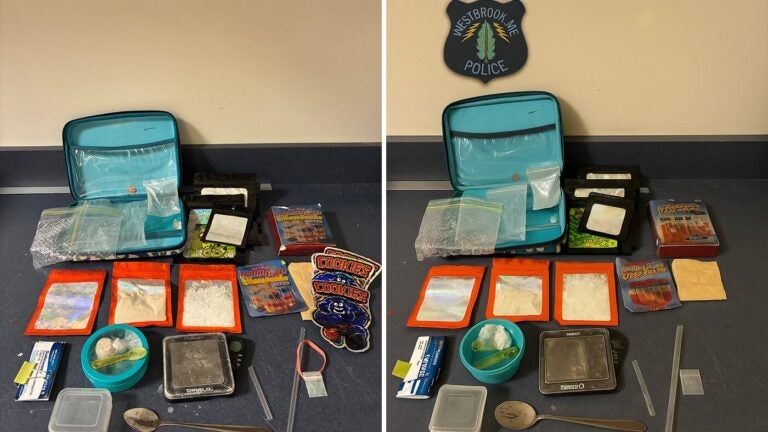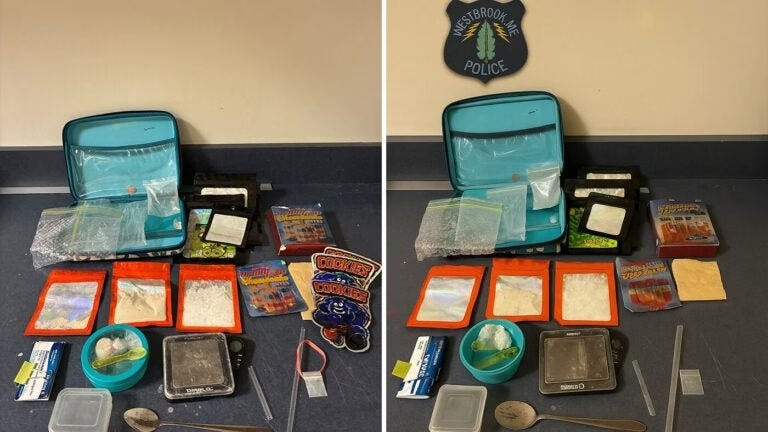Local News
“Clearly, we should have looked further into the shared image,” Westbrook police acknowledged.

A Maine police department has offered a mea culpa after the agency said it inadvertently shared an AI-altered photo of drug evidence on social media.
The image from the Westbrook Police Department showed a collection of drug paraphernalia purportedly seized during a recent drug bust on Brackett Street, including a scale and white powder in plastic bags. According to Westbrook police, an officer involved in the arrests snapped the evidence photo and used a photo editing app to insert the department’s patch.
“The patch was added, and the photograph with the patch was sent to one of our Facebook administrators, who posted it,” the department explained in a post. “Unbeknownst to anyone, when the app added the patch, it altered the packaging and some of the other attributes on the photograph. None of us caught it or realized it.”
It wasn’t long before the edited image’s gibberish text and hazy edges drew criticism from social media users. According to the Portland Press Herald, Westbrook police initially denied AI had been used to generate the photo before eventually confirming its use of the AI chatbot ChatGPT.
The department issued a public apology Tuesday, sharing a side-by-side comparison of the original and edited images.
“It was never our intent to alter the image of the evidence,” the department’s post read. “We never realized that using a photoshop app to add our logo would alter a photograph so substantially.”
Westbrook police also explained they’ve previously encountered drug-related materials with gibberish text on the packaging.
“When initially alerted to the public concerns of the image, we assumed this was the case in this situation as well,” the department added. “Clearly, we should have looked further into the shared image.”
The increasing prevalence of artificial intelligence poses significant challenges for judges and attorneys tasked with determining the authenticity and reliability of evidence, as Reuters reported in May.
“We consider this a valuable lesson learned,” Westbrook police said. “To remain fully transparent, we will be inviting the news media to come look at the original evidence, so they can see that the evidence does actually exist.”
Sign up for the Today newsletter
Get everything you need to know to start your day, delivered right to your inbox every morning.



Leave a Reply